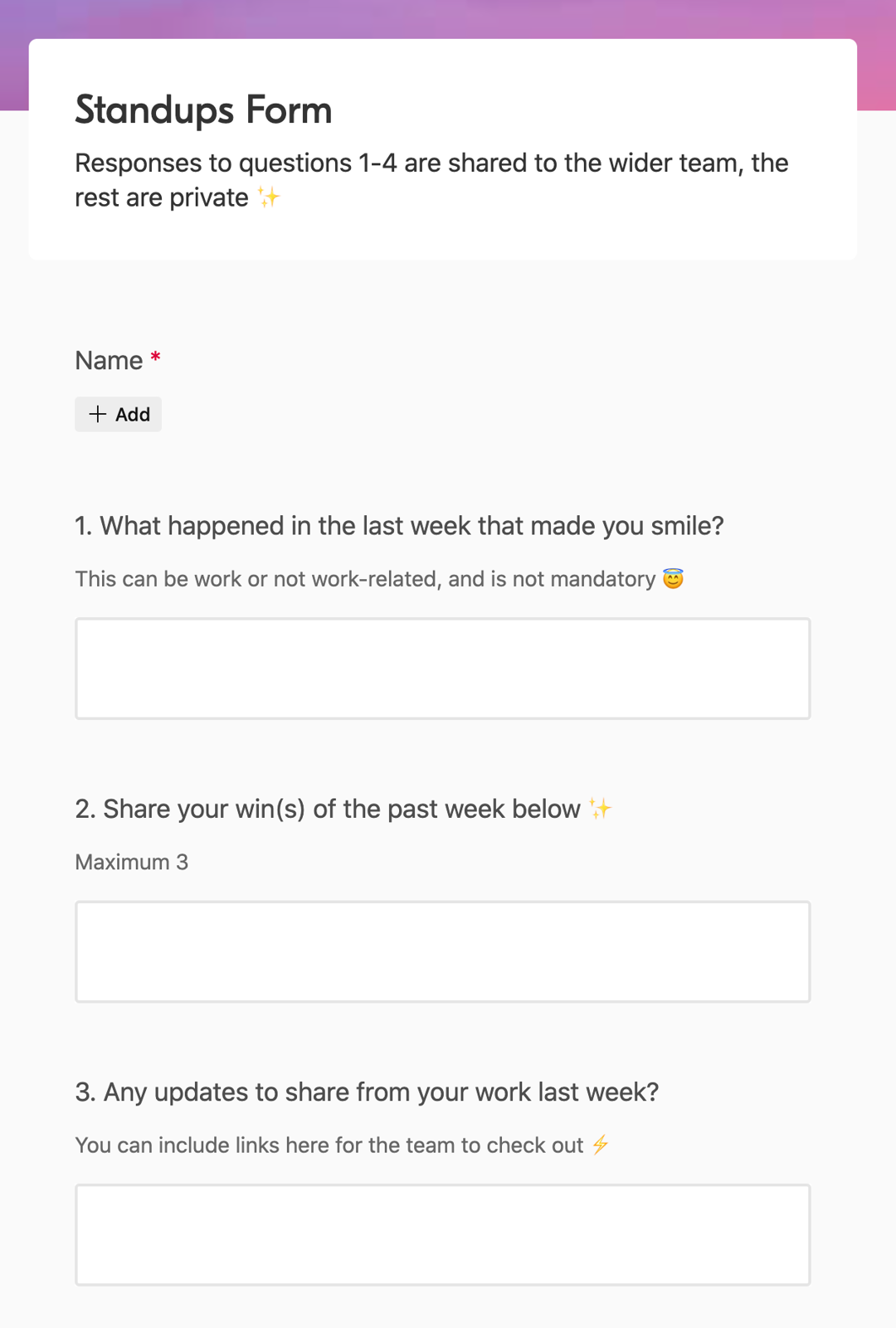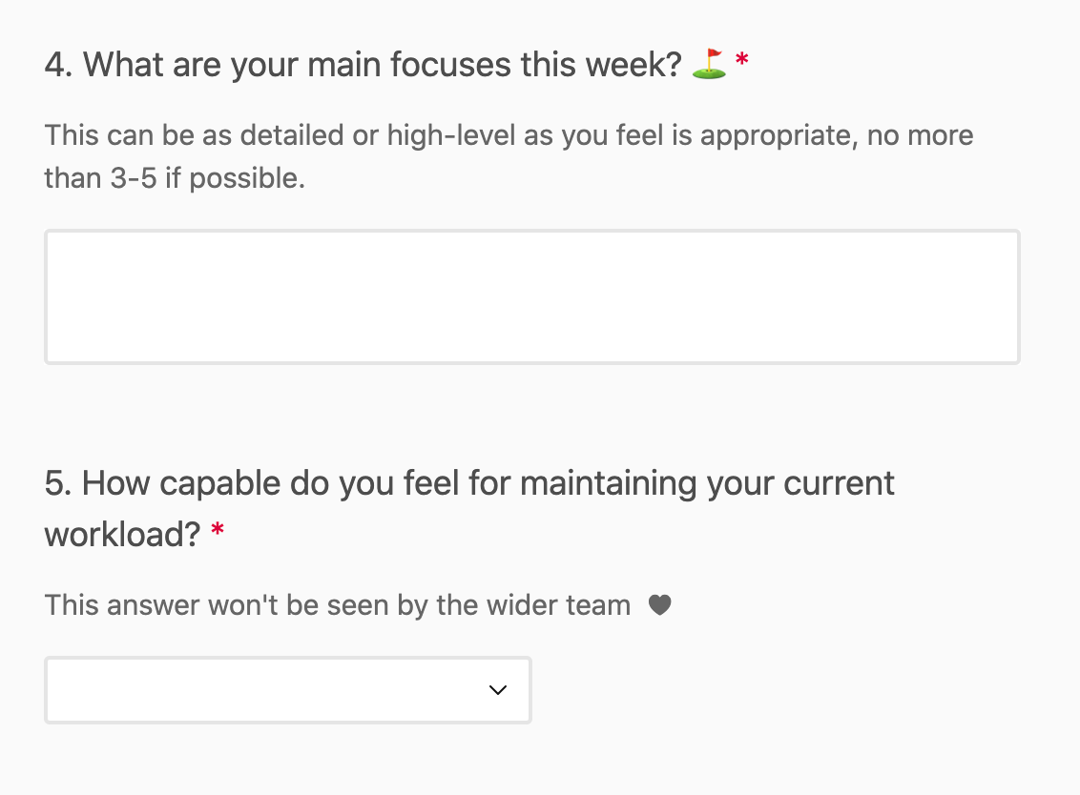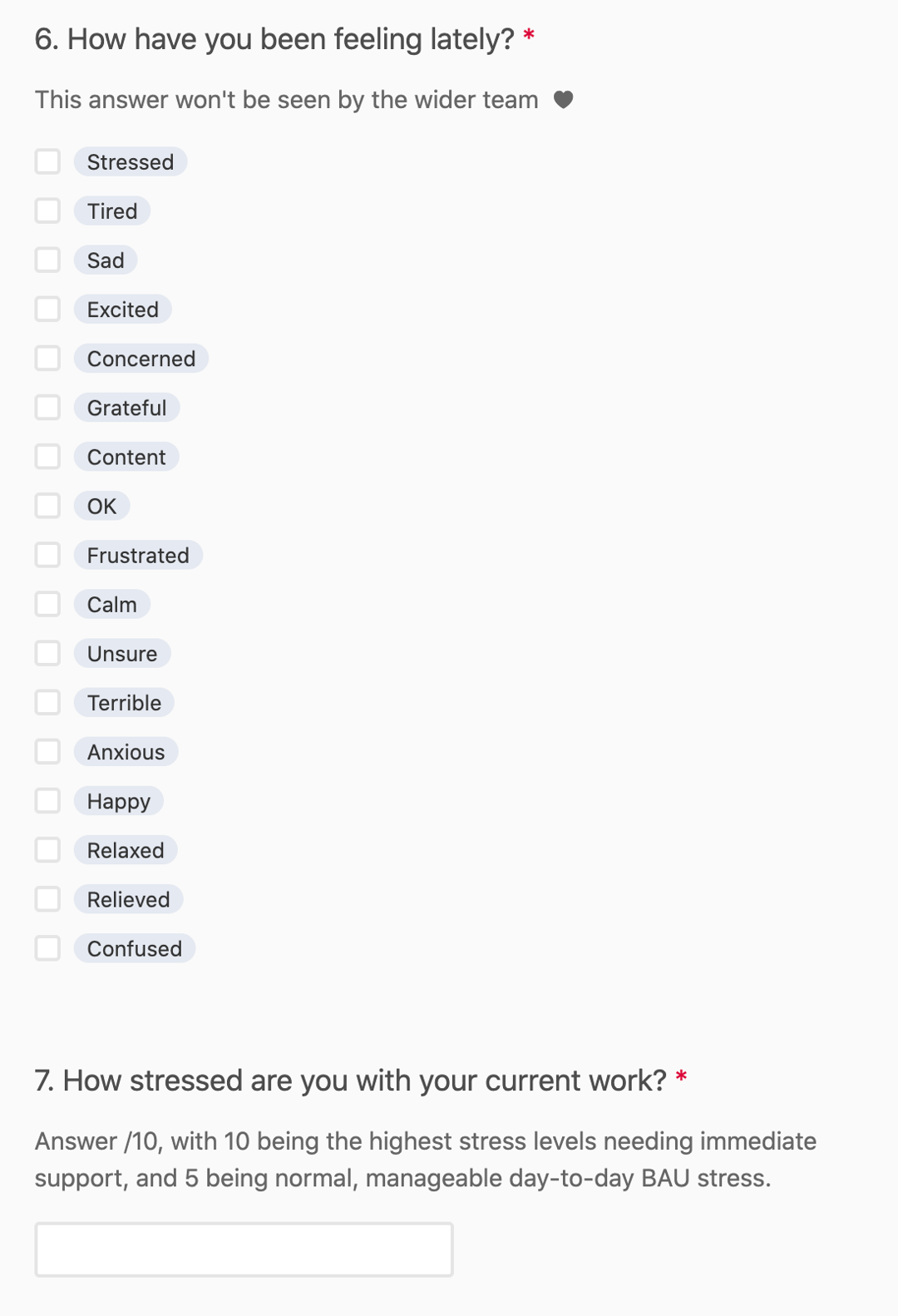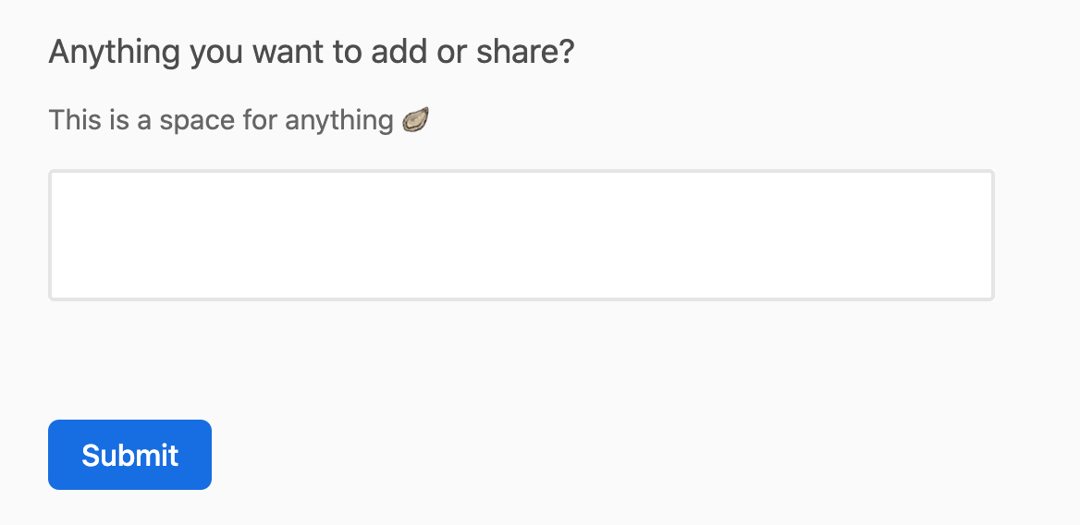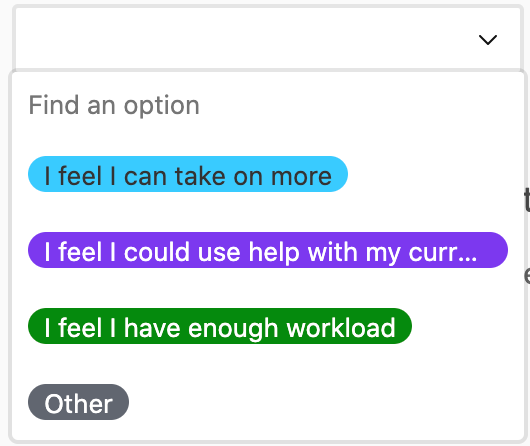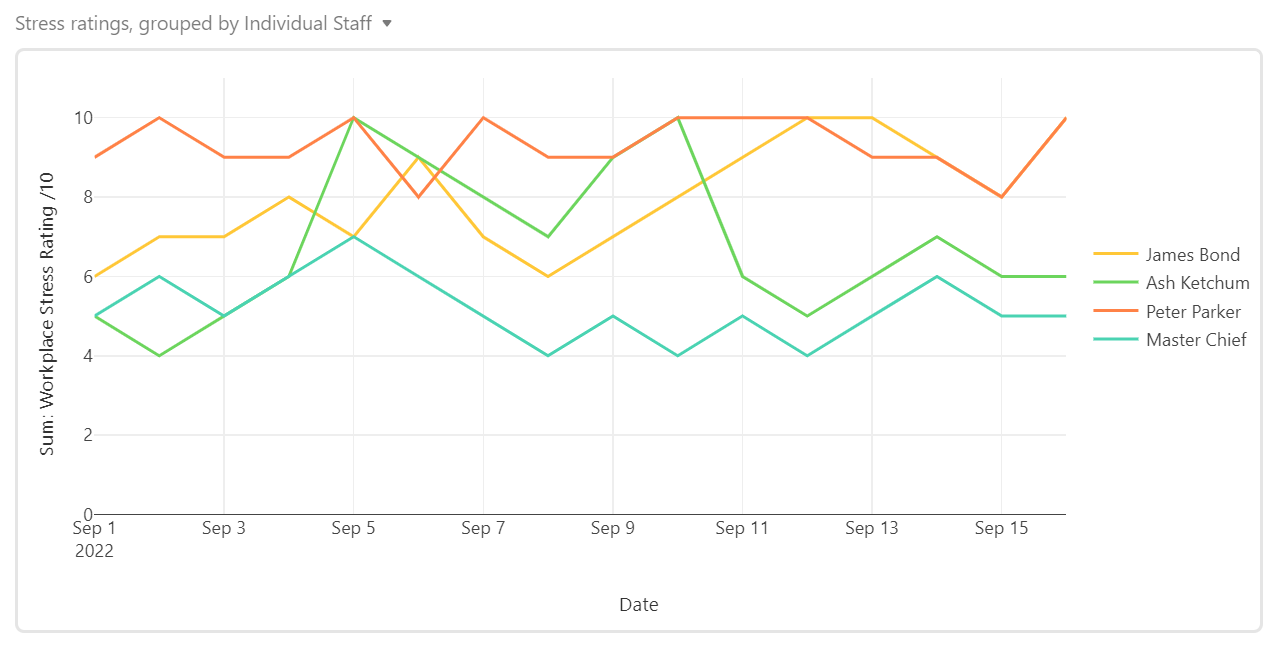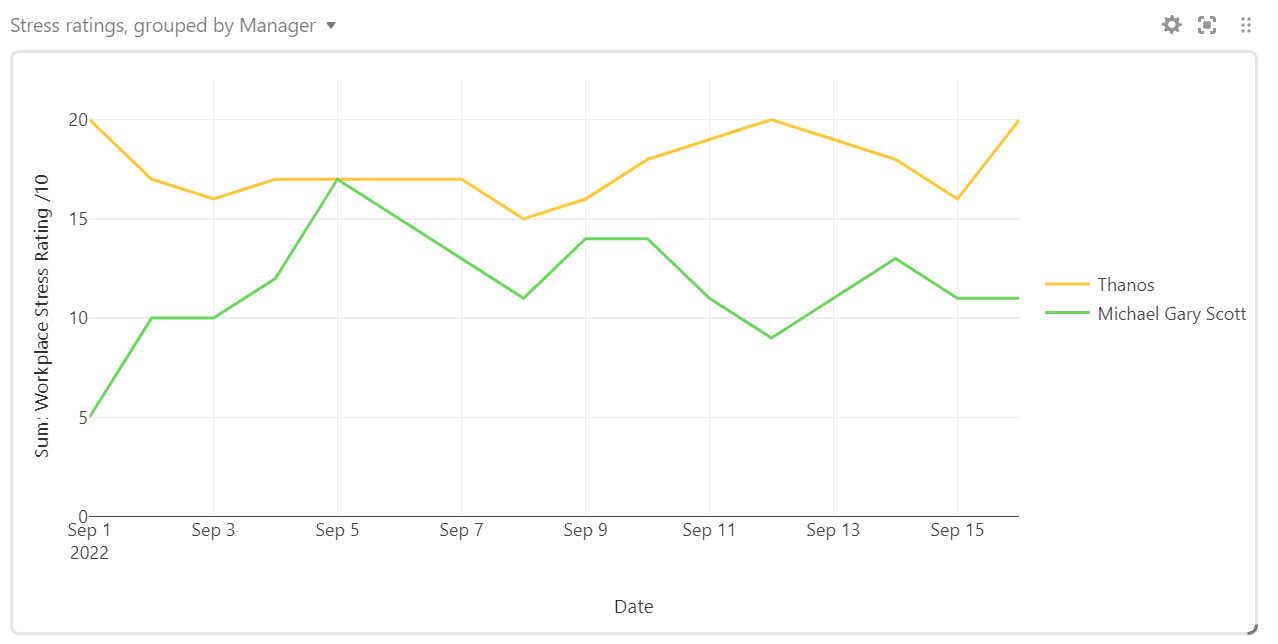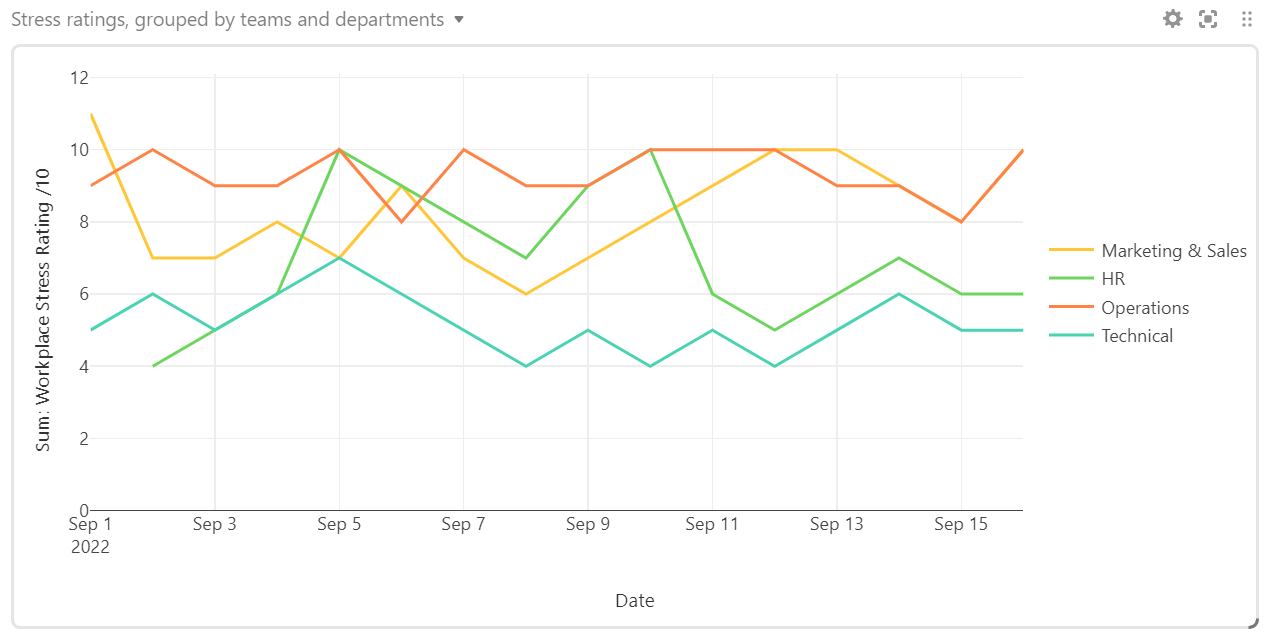
5 tips to be a better leader and manager
1. Ask for feedback on yourself
I have never had a manager ask for feedback on their own performance. This is a shame, as many of these people could have become excellent leaders if they created a space for feedback on their performance. Noticing this, I made a commitment to always ask for feedback on myself when I started to lead teams. Thankfully, doing so led to many benefits like personal insights, for example...
One team member once told me, "you are sometimes too efficient". When I got this feedback I was initially confused 😅. I then asked this person to expand on the feedback. From this, I discovered that my drive for efficiency was causing less confident team members to not speak up on calls. It also meant that those who liked to brainstorm and strategize on calls felt creatively time-pressured. From this feedback, I changed how I structured meetings moving forward. I also took some of this feedback in my personal life and noticed similar instances where I needed to slow down.
If you asked your team for personal feedback, what would they say?
Try it, ask them and it could positively change your work & personal life behavior.
2. Measure working capacity and stress
Knowing how stressed your team members are can be hard. Knowing your team members' individual working capacity week-to-week is also hard. Knowing how to connect and build emotional connections with team members can be very hard.
So, how can you solve this?
Use a weekly stand-up form that provides a space for your team members to leave weekly stress ratings, and a place to share their workload capacity with their manager. See an example of this stand-up form below:
Stress and capacity feedback (questions 5, 6, and 7)
From this form, management can easily identify when staff need more support, when teams and individuals are getting stressed, and who has the capacity to take on more.
For example, question 5 asking about the current workload offers this dropdown selection for staff (see below) to indicate if staff are feeling overworked and need support, or even if they have the capacity to take on more. This often leads to discovered underutilized or overutilized resources.
Staff stress rating can then also be monitored in a graph by management to see individual and team's changing stress levels. This is useful to help detect potential burnout before it happens, and to measurably track if new initiatives to improve current practices are working.
For example, below you can (zoom in) and see stress level data as a whole for the organization, by individuals, or grouped by department. You can also see stress levels grouped by managers to identify managers who may need support and training, and those who may offer learnings for other managers in the same department.
Using this stress and capacity data managers regardless of EQ and management style can more easily understand the current needs and opportunities within their teams. This combined with data on how staff are feeling (question 6) can help managers detect signs of initial or growing negative sentiment. Managers can then use this to identify areas of opportunity to help improve these responses and lower turnover rates.
Team bonding benefits of Question 1
Question 1 asks "What happened in the last that made you smile?" The answer to this question is helpful for managers who struggle to connect with their team, as every week managers can get a personal insight into their team members' lives from this optional question. This can then help with informal conversations in 1:1. This also helps to facilitate inter-departmental bonding, as the answer to this question is ideally shared with both the wider team and managers in automatic weekly stand-up reports. For example, this means that Alice the CFO who never interacts with Sam in Marketing can see that Sam went to see the Mamma Mia musical and loved it. Alice may also love musicals, so they now have something to talk about in Teams/Slack or the next team social event.
2. Set aside time to give balanced feedback
Most workplace anxiety does not stem from the difficulty of the work itself, but from the social pressures, miscommunications, and expectations associated with the work. This is great news, as these causes of workplace anxiety are under your control as a manager and leader. Many managers are unaware of the importance of sharing consistent balanced feedback. Instead, most either lean too heavily on being critical or uncritical. So, if you set a goal to provide sincere positive and negative feedback to each person you directly manage at least once every month you can reap many benefits.
Some benefits of doing this are having team members that are...
- More confident in suggesting ideas, alternatives, and concerns,
- More motivated to keep doing a good job and are less likely to quit,
- More confident in themselves and inter-team communications,
- More open to new ideas, and better able to absorb critical feedback,
- More motivated to seek higher self-actualization opportunities internally, and so longer retained.
3. Discuss & track the company culture & values every 3 months
First, during onboarding, you should clearly discuss the company's values and culture. Then, every three months, you should discuss with your team members, either privately or in a group meeting, their perceptions of the company culture's evolution from their experiences. This approach can provide deep insights into how the company culture is evolving over time, and whether this evolution aligns with your management goals.
Company culture changes and evolves daily at the department, team, and sub-team levels. As management, you will never have a complete understanding of the overall culture. However, with strategies like this, you can understand it better.
Company culture changes and evolves every day at the department, team, and sub-team levels. You, as management, will never truly know what the overall company culture is. However, with strategies like this, you can understand it better.
4. Explain the company strategy & decisions
Anytime a team, department, or the company changes its strategy in a way that affects others' work, the reasoning for this change must be explained to those affected. Failing to do this leads to a gradual build-up of staff resentment toward management. This is for changes they may not like and do not understand the need for. However, once the reasoning behind the changes is explained most people will support the changes, even if they strongly disagreed before. Explaining the "why" behind decision-making is a very important part of being a leader that can genuinely get your team to buy into the greater vision.
5. Ask your team members how they work best
For me, I usually work best from 10am to 3pm, then from 9pm to 1am. We all know ourselves the best, so instead of guessing how to optimize our teams, you can just ask them. In this way, you can cater to everyone's strengths and natural rhythms. Of course, this will be within limits based on your company for core hours and so on. However, too few managers simply ask team members how they work best. This also applies to workflow tools and software, as this approach can often lead to the discovery of more efficient systems.
